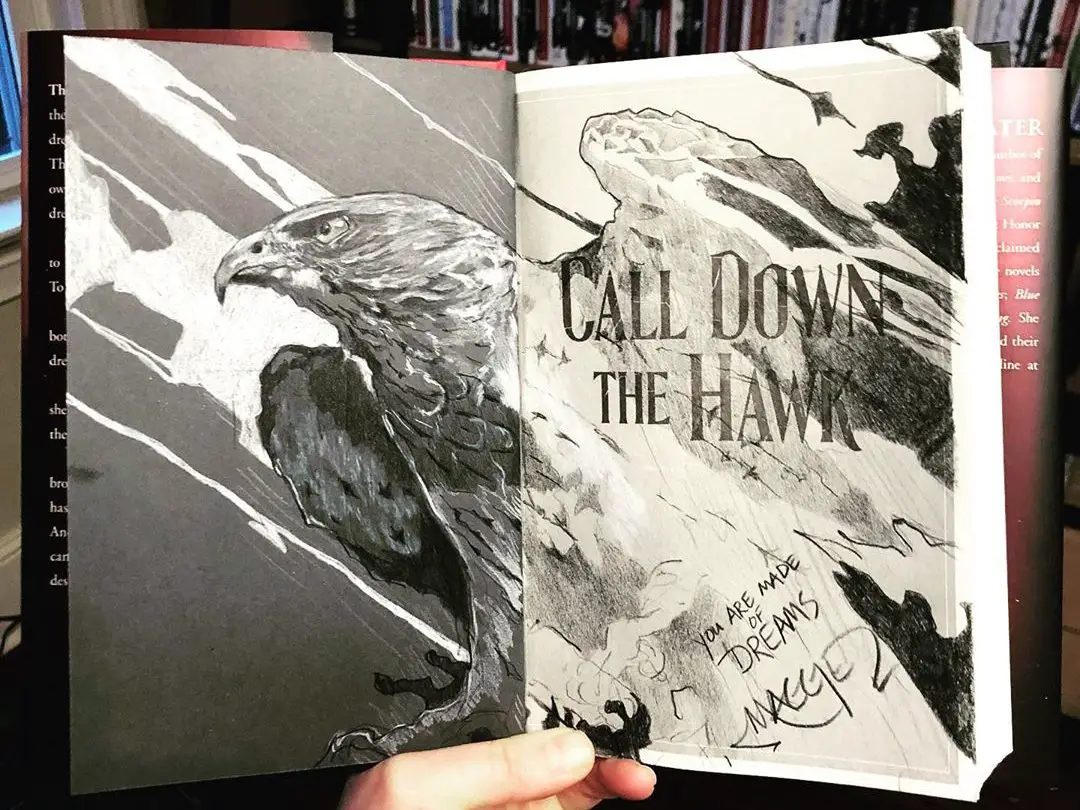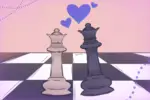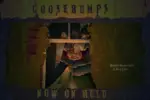With three different young adult series under her belt, you would think Maggie Stiefvater was a pro at writing. However, her most recent novel, “Call Down The Hawk,” the first in her new “Dreamer” trilogy, failed to meet expectations. I’ve read all of Stiefvater’s other works, watching her writing and her plots improve as she grows as a writer, but this new book feels like a step back.
While previous Stiefvater series have entranced readers from book one, this book feels like a miss, like 400 pages of exposition. Obviously, first novels in book series have to give a background to the world the characters live in and to who the characters are, but this whole novel felt like it was going nowhere. The plot was minimal, mixed in between prose that was more character study than anything else. In the past, I have praised Stiefvater for her exploration of characters’ personalities and her ability to make them seem three-dimensional. That being said, a novel still needs a plot. With “Call Down the Hawk,” it felt like Stiefvater was more focused on the quality of writing than the novel as a whole.
The biggest problem with her focusing on characters rather than plot was that the characters aren’t engaging. Her most recent series, “The Raven Cycle,” featured a core of four main characters with a bounty of side characters. Everyone was interesting; even the villains have fans. “Call Down the Hawk” features a mostly new set of characters, but none of them even come close to the depth or the appeal of any of the older characters.
Readers see old faces in “Call Down the Hawk,” like Ronan Lynch, the series’s lead protagonist. Fans first met him back in “The Raven Boys,” book one of Stiefvater’s last series. In this new series, he is facing a new set of challenges in a whole new environment. Before, he just had to learn how to dream, since he often pulls things both good and bad from them and brings them into the real world. Now, he is working to find out more about the other dreamers. Before this novel, he assumed that he and his deceased father were the only ones. He learns through a mysterious man in his dreams, one whose face he never sees and whose real name he does not know. This stranger encourages Ronan to get the help of his older brother to learn more about the secrets his father kept.
Declan Lynch is Ronan’s older brother and an assumed boring nerd. Fans saw him last through Ronan’s perspective back in the “The Raven Cycle,” and Ronan had nothing nice to say. He drove a boring car and wore boring suits and had a boring job and dated boring women. He was stunningly average in every way. Now, fans get to explore the mind of the “boring” brother. Except … readers don’t get to do that. Stiefvater tries to convince us that Declan isn’t boring, but it often fails. Declan himself acknowledges that he has put himself on a dull path of life, something that he takes great pride in. He saw the danger in being extraordinary; it’s what got his father killed. It’s what left him in charge of his two younger brothers.
Readers get to learn more about Matthew Lynch, the youngest brother and originally just a figment of Ronan’s imagination. Matthew was pulled from one of his dreams. All readers get to learn, though, is that Matthew has these strange pulls toward nature, likely to a ley line, the magical amplifier that much of “The Raven Cycle” revolved around. It’s never really explained the pull that he, as a dream creature, feels.
The Lynch brothers aren’t the only stars of the show, though. Carmen Farooq-Lane is the first character in the novel that fans get to meet. She is tough, ruthless even. The opening scene is her leading a charge to kill her own brother. She seems shocked when it happens but acknowledges that she knew this was how it was all going to end. Carmen is doing what she believes will help save the world. Rumor has it that one day a dreamer is going to bring the world to ruin; no one knows which one. An elite team has been assembled to start taking them down one by one, with the aid of a seer, someone who catches glimpses into the future. They can find the dreamers that assassins like Carmen need to find.
This category includes dreamers like Jordan Hennessy: Every time she dreams, she brings back a clone of herself. They’re like her but not. They have all of her memories but not the freshness of living them. Their personalities are completely changeable based on the mood Hennessy was in when she dreamt them. They’re all co-dependent independents; they live and work together but all have their own unique set of interests. The first clone, Jordan, has a special interest in Declan.
One would think that a dreamed clone being into the boring Lynch brother would be the craziest thing about the novel. But, no, that honor goes to the lack of plot. As I said earlier, the book felt more like character study after character study. With all of these characters, all of these different skills and different personalities, the possibilities of plot are endless. And, yet, Stiefvater chose to have them just barely meet, just barely begin to form friendships and rivalries.
Rather than taking readers into the first part of a wondrous adventure, Stiefvater uses the entire first book as a sort of pilot episode: It’s enough to get the network interested in creating more episodes, but not enough to really get viewer attention. While this strategy might work for a TV series that takes an hour or less to consume, this strategy fails when applied to novels that can take hours or days to read.
“Call Down the Hawk” has failed as a first novel. As a reader, I’m genuinely not interested in pursuing the rest of the series. My expectations were high for Maggie Stiefvater, and she has let me down.
















